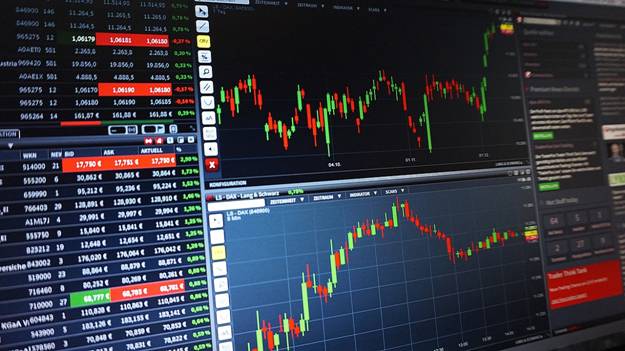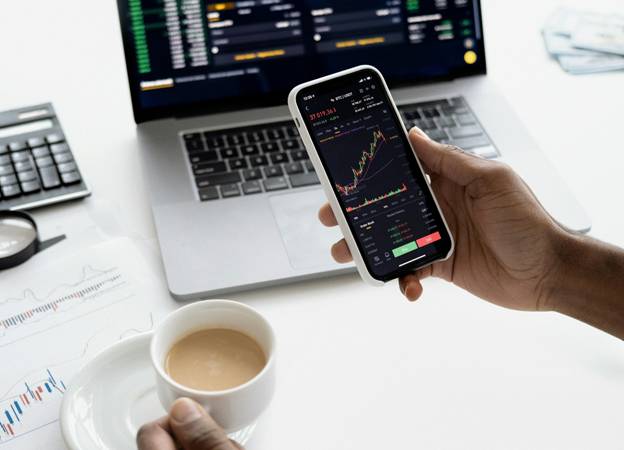Forex Trading Mistakes: Lessons from the Frontlines and How to Build Long-Lasting Success
If you talk to a hundred forex traders, you're bound to hear a hundred different stories — tales of wild successes, rapid gains, painful losses, and, above all, lessons learned the hard way. The forex market, open 24 hours a day and with a daily turnover exceeding $7.5 trillion by 2022 (Investopedia), is a place where opportunity and risk walk hand in hand.
But behind every story of triumph there are often stories of blunders: common missteps that even the most talented traders have made at one time or another. Some traders recover, improve, and thrive; others fall victim to these traps repeatedly until they're forced to walk away. Why does this happen? The answer lies in a mix of psychology, habits, and the technology available — all of which play central roles in which path you're likely to take.
In this article, we'll journey through the landscape of forex trading mistakes, bringing real-world context and narrative to the most frequent pitfalls, and discussing how modern platforms are well-positioned to help you break the cycle. Along the way, you'll see how transforming losses into lessons can be your greatest edge.

Source: Pixabay
The Story Behind the Mistake: Why Good Traders Still Go Wrong
It's tempting to believe that only novices make big mistakes, but experience is no guarantee of immunity. Whether you've just made your first deposit or you've traded for decades, you're bound to wrestle with the same core challenges because forex trading isn't just about data and numbers — it's about the human mind.
Imagine Sarah, a new trader inspired by a friend's tales of massive wins. She jumps in with real money, buoyed by a couple of small wins. As confidence grows, so does her position size — right up until the market turns against her. Unprepared, she freezes, refuses to cut her losses, and ends up blowing a significant chunk of her account.
Or picture Michael, a seasoned trader. He follows his system methodically most of the time, but after a run of bad trades, frustration pushes him into overtrading — chasing the market to "just get even". Inevitably, the errors compound.
What do these stories have in common? Whether rookie or pro, emotions, lack of planning, and failure to stick to trading discipline lie at the heart of most forex trading mistakes.
The Role of Technology and Modern Trading Platforms
Technology has revolutionized forex trading. While fast executions and worldwide access have democratized opportunities, they've also made it easier to fall victim to psychological traps. The instant gratification of platforms, combined with a flood of market data, triggers impulsive decisions unless traders have robust systems in place.
This is where advanced solutions step in. Through automation, built-in risk control, and educational resources, this platform aims to bridge the gap between human psychology and optimal trading performance — but more on this later.
Unpacking the Most Costly Forex Trading Mistakes
While no two traders have exactly the same journey, decades of trading stories reveal that most dramatic losses result from a small handful of mistakes. Let's bring these to life with narrative examples and see what can be done differently the next time.
1. Skipping the Planning Stage
Think of forex trading as setting out on an ocean voyage. Would a captain ever launch without carefully plotting the route, checking the weather, and preparing for unexpected storms? Of course not. Yet many traders do just that — jumping into live trades without a written plan or predefined rules for entry, exit, and risk limits.
Sarah, our earlier example, might have been spared her biggest loss with a simple trading plan. She — and many others — fall into these avoidable patterns:
- Entering or exiting trades based on gut feeling or "hot tips" from forums- Changing trade size impulsively from one trade to the next
- Not knowing in advance how much loss is acceptable per trade or per day
The Core Components of a Solid Trading Plan
- A clear strategy for when to enter and exit trades (including preferred setups or patterns)
- Predefined risk limits (maximum loss per trade, number of trades per day)
- Written rules for adjusting or closing positions (no emotional overrides)
Platforms like markets4you offer demo accounts and strategy-building tools designed to help traders plot their course before risking a dollar, reducing the urge to trade on a whim.
2. Poor Risk Management
If you survey successful traders, nearly all will tell you that rigid risk management is their "North Star". Why? Because even the best strategies lose occasionally — sometimes several trades in a row. Without limits, one bad streak can wipe out months or years of slow, steady progress.
Let's revisit Michael, the veteran. After those losing streaks, Michael ignored his stops in a moment of frustration, letting a small loss spiral. It's a common story in forex — and one that technology and discipline can prevent.
Risk Management Mistakes That Destroy Accounts
- Trading too big for your account (overleveraging)- Failing to use stop-loss or take-profit orders
- Moving stop losses further away after entry, hoping the market will "turn around"
- Risking a significant portion of your account on a single position
The daily volatility of the forex market is magnified by high leverage, which can work as a double-edged sword. According to Investopedia, leverage of up to 100:1 is common, allowing dramatic gains — but also dramatic losses.
3. Emotional Decision-Making and Overtrading
Perhaps the most universal trading error is letting emotions dictate decisions: a few losing trades lead to revenge trading, or a big win triggers overconfidence and excessive risk. This is the cycle that sinks both beginners and experts.
For many, the act of watching prices tick up and down is intoxicating; the temptation to make “one more trade” or “get even” is ever-present. When traders begin to trade according to their feelings — rather than their plan — mistakes multiply rapidly.

Source: Pexels
Signs You're Trading Emotionally
- Increasing your position size after a loss to try and recover quickly ("revenge trading")- Skipping analysis or entering random trades out of boredom or frustration
- Letting fear keep you from taking planned trades, then entering late as the move progresses
- Feeling overwhelming stress or pressure before, during, or after trades
Modern brokers combat this by offering not only technological safeguards but psychological aids — educational resources, trade journaling tools, and even financial news feeds in real-time to help you replace impulsive reactions with informed analysis.
The Power of Learning From Losses: Real Growth in Forex Trading
The most successful traders aren't those who never lose. In fact, they've likely made every mistake described above — often more than once. What sets them apart is the determination not to repeat errors indefinitely. If you view setbacks as data, not disasters, you'll always move forward.
One compelling story comes from a long-time trader, Alex, who spent his first year in forex consistently losing due to overtrading. Instead of quitting, he shifted his focus entirely: he tracked every trade, recorded his emotional state, and forced himself to wait for only the most favorable setups. Within a year, his performance had turned around, and he now credits his "journal of mistakes" as his greatest asset.
The Role of Expert Guidance, Community, and Technology
While self-reflection and discipline are critical, they're rarely enough in isolation. Modern forex traders often seek mentorship, join online communities, and leverage the wisdom of seasoned players. Bloomberg recently noted in an analysis of professional trading habits that "market psychology, risk management, and continuous education are more decisive for long-term success than any individual winning trade" (Bloomberg).
Reputable trading platforms promote this community spirit, hosting webinars, Q&A sessions, and technical deep-dives to foster shared growth and keep emotional mistakes in check.
How to Avoid Common Trading Mistakes: A Continuous Learning Approach
Staying in the game isn't just about what you avoid; it's also about what you do differently each time you encounter challenges. For an actionable, step-by-step guide to developing your own error prevention routine, visit How to Avoid Common Trading Mistakes.
- Commit to Lifelong Learning: The forex landscape is always evolving.- Use Technology and Automation: Let platforms handle repetitive, emotionally risky tasks.
- Build a Network: Surround yourself with other traders for perspective, support, and accountability.
- Take Regular Breaks: Step away after losses or wins to keep emotions in check.
Conclusion: Your Next Trade Starts with Today's Lessons
The journey through forex trading mistakes is a rite of passage — some lessons are costly, others brilliant. What matters most is that you document your journey, reflect honestly, tame your emotions, and use all resources at your disposal, including the technology and educational support provided by platforms such as markets4you.
Remember: nobody wins every time. What separates the successful from the sidelined is how they handle, learn from, and overcome mistakes. With patience, technological support, and a genuine willingness to improve, your story as a forex trader can remain in the winner's column — trade after trade.
Date: 07.05.2025
Get your content published on BanksDAILY.com in just a few clicks.
- Updatings
- 3BankFebruary 13, 2026
- Banco CarregosaFebruary 12, 2026
- Caixa Geral de DepósitosFebruary 12, 2026
- Millington Savings BankFebruary 12, 2026
- Millennium bcpFebruary 12, 2026
Smart Investing
Buy $BD coins and become an essential part of the BanksDAILY project! We create a culture of ownership using secure and fast blockchain technology!
Buy NOW!